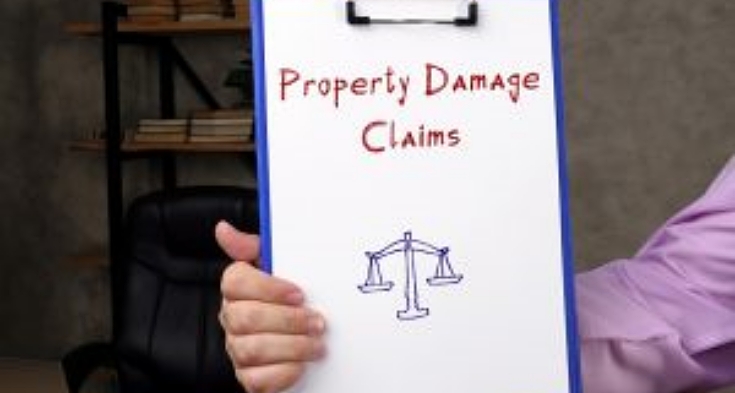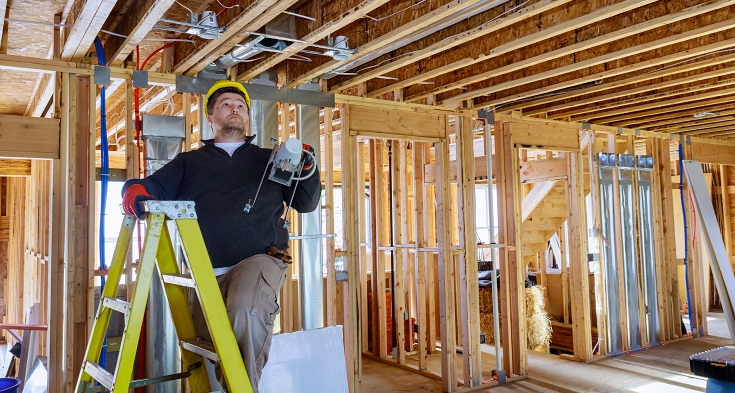
Florida Respiratory Therapists play a vital role in supporting patient breathing, especially in critical care settings. With this important responsibility comes intense regulatory scrutiny from the Florida Department of Health (DOH). An Administrative Complaint alleging violations of Florida Statute 468.365(1)(b) can seriously threaten your license and your career.
At Elevate Legal Services, PLLC, we focus exclusively on defending healthcare professionals across Florida—including respiratory therapists—who face DOH Administrative Complaints and discipline. Our Boca Raton-based law firm brings deep experience navigating DOH investigations and administrative law proceedings. Whether you’re under investigation or have already received a complaint, our team is ready to stand by your side.
Call Elevate Legal Services, PLLC today at 561-770-3335 or email [email protected]to schedule a confidential consultation. Acting quickly strengthens your defense and ensures your rights are protected.
What Is Florida Statute 468.365(1)(b)?
Florida Statute 468.365 governs disciplinary grounds for respiratory therapists. Section (1)(b) states that the Board of Respiratory Therapy may impose discipline for:
“Malpractice, gross negligence, incompetence, or conduct likely to deceive or defraud the public.”
This provision applies to a wide range of behaviors. The DOH considers any departure from accepted standards of care—whether intentional or due to negligent oversight—as potential grounds for disciplinary action. Even inadvertent errors could lead to a formal complaint if they caused patient harm or indicated professional incompetence.
What Behavior Triggers an Administrative Complaint under F.S. 468.365(1)(b)?
Here are the most common scenarios that lead to complaints under this statute:
- Patient Harm from Ventilator Mismanagement
Mishandling ventilator settings, failing to monitor alarms, or delays in response that result in patient distress or injury. - Gross Charting or Documentation Errors
Falsifying ventilator logs, vital sign records, or documentation in patient charts indicating negligence or intentional deception. - Incompetent Administration of Respiratory Interventions
Incorrect delivery of aerosol treatments, airway suctioning errors, or failure to properly manage oxygen delivery devices leading to hypoxia or other complications. - Misconduct or Dishonesty
Attempting to conceal medical errors, lying to supervisors, or misrepresenting qualifications or treatment records. - Failure to Respond to Alarms or Critical Lab Results
Ignoring ventilator or oxygen saturation alerts, or failing to escalate care when issues arise. - Negligent Equipment Management
Using malfunctioning ventilators, failing to inspect equipment, or not following infection control protocols. - Non-Clinical Conduct
Medical device fraud, performing services beyond competency, or engaging in unprofessional behavior that affects patient trust.
Even a single documented incident that harms or jeopardizes a patient can trigger a complaint and open the path to disciplinary action.
What Happens Before You Receive an Administrative Complaint?
Typically, the formal complaint is the final stage of a multi-step DOH process. Here’s how an investigation usually unfolds:
- Incident Occurs in Clinical Setting
A ventilator misstep, documentation error, or patient complaint arises.

- Internal Reporting and Preliminary Review
The hospital or clinic conducts an internal review. This may involve root cause analysis or peer review. - Incident Reported to DOH
Hospitals and employers are mandated to report adverse events. Licensing boards may also become aware via audits or complaints. - DOH Preliminary Investigation
The DOH opens an investigation to evaluate the incident, requesting documents, employment records, interviews, or medical charts. - You May Be Contacted or Subpoenaed
You may receive a notice or subpoena requesting records or your statement. - Probable Cause Review
If evidence suggests sufficient grounds, the Probable Cause Panel recommends filing a formal Administrative Complaint. - Administrative Complaint Issued
The complaint becomes public, detailing specific allegations under F.S. 468.365(1)(b).
Understanding that the complaint is preceded by an investigation, it gives you time to act—don’t wait until the complaint hits your mailbox.
Why You Need Immediate Legal Assistance
You’re probably thinking: “Can’t I just cooperate with the process on my own?” The short answer: no. Administrative law proceedings and the DOH’s enforcement power are complex, and your professional license is on the line.
Here’s why early legal representation is essential:
- Timeliness: The DOH sets tight deadlines. Missteps can lead to a default judgment and immediate suspension.
- Evidence Preservation: Records, maintenance logs, equipment settings, and alarm logs are critical—and easily lost or altered.
- Procedural Knowledge: F.S. 468.365(1)(b) cases rely heavily on peer standards and protocols. You need a lawyer who knows the framework.
- Negotiation Leverage: A strategic counter-narrative—complete with mitigating evidence—can reduce or resolve charges pre-hearing.
- Professional Advocacy: DOH prosecutors are attorneys; you should be too. Facing them without counsel is a huge disadvantage.
Elevate Legal Services, PLLC brings extensive experience in defending respiratory therapists through all phases—investigation, settlement, hearings, and appeals.
Common Defenses to F.S. 468.365(1)(b) Allegations
Each complaint is unique, but several effective defense strategies often apply:
No Patient Harm or Minimal Injury
Evidence—such as charts, physician testimony, or subsequent interventions—can show that the incident did not cause actual harm or was promptly corrected.
Adhered to Standard of Care
Expert testimony can demonstrate that actions were aligned with accepted respiratory therapy standards, even if outcomes were unfortunate.
Equipment or System Failure
If equipment malfunctioned or hospital protocols were deficient, responsibility may lie outside your control.
Incomplete or Biased Investigation
Errors in documentation, inconsistent statements, or flawed investigative methods can justify dismissing or reducing charges.
Human Factors and Mitigation
Circumstances like being the lone night-shift staffer, heavy workload, or emergent situations can explain errors without undermining your professional judgment.
Procedural or Legal Missteps
If the DOH failed in notice, jurisdiction, or process, your case may be dismissed on procedural grounds.
Step-by-Step Guide to Responding to a DOH Administrative Complaint
If you receive a DOH complaint under F.S. 468.365(1)(b), here are the essential steps:
Step 1: Read the Complaint Carefully
Identify specific incidents, timelines, witnesses, and evidence.
Step 2: Contact Legal Counsel Immediately
Call Elevate Legal Services, PLLC at 561‑770‑3335 or email [email protected]. Don’t delay—strict legal deadlines apply.
Step 3: Preserve All Evidence
Secure patient charts, alarm logs, incident reports, communications, and equipment data.
Step 4: Choose Your Hearing Type
- Informal Hearing: If the facts are largely undisputed, you seek mitigation.
- Formal Hearing to contest factual allegations.
- Negotiation to seek a consent agreement with minimal discipline.
Step 5: Develop Your Defense Strategy
Collect expert opinions, document standard procedures, gather shift logs, highlight training, qualifications, and corrective actions taken.
Step 6: Engage in Settlement Negotiations
Many DOH cases are resolved through settlement agreements that reduce discipline or impose minimal penalties.
Step 7: Prepare for a Hearing
Draft pre-hearing motions, subpoenas, and witness lists. Your attorney will represent you before Administrative Law Judges and the Board of Respiratory Therapy.
Possible Penalties Under F.S. 468.365(1)(b)
If the DOH finds violations, penalties may include:
- License suspension or revocation
- Civil fines
- Mandatory continuing education or remediation
- Immunization of record (public reprimand)
- Probation under conditions
- Restriction on practice responsibility or prescribing rights
Even minor sanctions can significantly harm your reputation and employability. That’s why a strategic legal defense is essential.
Why Choose Elevate Legal Services, PLLC?
Respiratory therapists across Florida trust Elevate Legal Services, PLLC for a reason:
- Exclusive Focus – We specialize in DOH and Board matters.
- Deep DOH Insight – We understand how to navigate PEER reviews, investigations, and Board dynamics.
- Proven Advocates – We build winning strategies, from early intervention through hearing and appeals.
- Client-First Approach – Your career is our priority, and we’re as invested as you are.
We’re not just attorneys—we’re staunch advocates safeguarding your livelihood.

Final Thoughts: Don’t Wait, Your Career Depends on It
A respiratory therapy license is the product of years of training, clinical practice, and professional commitment. Facing an Administrative Complaint under F.S. 468.365(1)(b) is daunting, but you don’t have to face it alone.
Contact Elevate Legal Services, PLLC at 561‑770‑3335 or email [email protected] now to protect your license and future.
Let us help you navigate the complexities of DOH investigations and litigation. Your livelihood is worth fighting for—and we’re prepared to fight for you.





